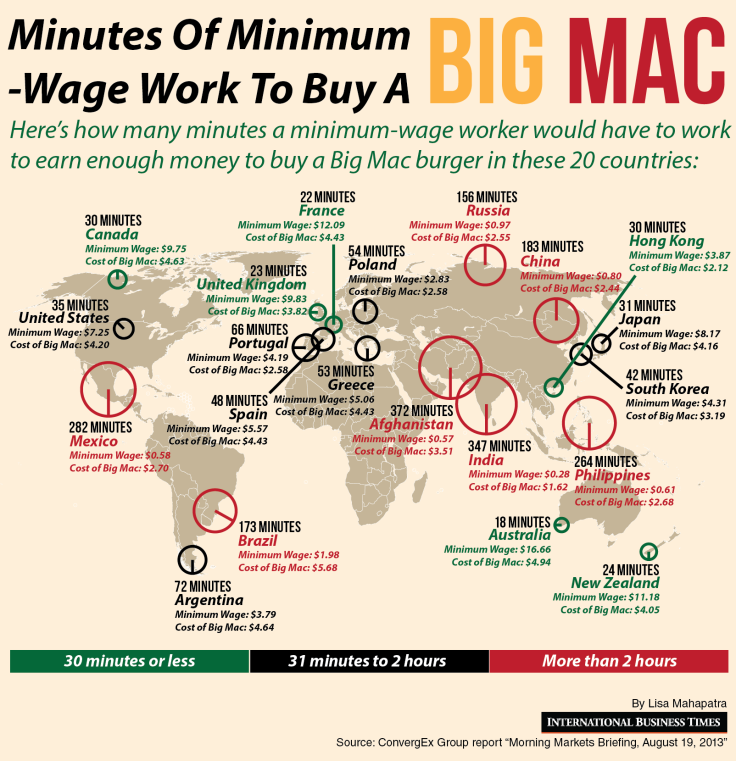Minutes Of Minimum-Wage Work To Buy A Big Mac: 36 minutes in the US, 6 hours in Afghanistan
About six hours of minimum-wage work in India or Afghanistan earns you the same purchasing power, or enough money, to buy a Big Mac burger from McDonald's (NYSE:MCD) as just 18 minutes of work in Australia, according to a new report from the ConvergEx Group.
The Economist developed the Big Mac Index in 1986 as a lighthearted way to measure “whether currencies are at their 'correct' level."
According to the magazine’s website:
“It is based on the theory of purchasing-power parity (PPP), the notion that in the long run exchange rates should move towards the rate that would equalize the prices of an identical basket of goods and services (in this case, a burger) in any two countries. For example, the average price of a Big Mac in America in July 2013 was $4.56; in China it was only $2.61 at market exchange rates. So the "raw" Big Mac index says that the yuan was undervalued by 43% at that time.”
The ConvergEx Group’s analysis put a new spin on the classic Big Mac Index. They added another datapoint to the mix -- minimum wage. The report calculated how many hours of work at minimum-wage rates a worker need to do to earn enough money to purchase one Big Mac burger.
It takes about 34 minutes to earn enough for a Big Mac in the U.S., according to calculations by ConvergEx strategists, but it takes more than 10 times as many minutes of work -- 372 minutes -- in Afghanistan.
In Sierra Leone, it takes more than 5 and half days of work, or 136 hours, to earn enough to purchase a Big Mac.
Here’s a map of how many minutes of minimum wage work earn one Big Mac burger:

Here are the same numbers in a bar chart:
Sierra Leone isn’t included in these visualizations as it is an extreme outlier, and makes other comparisons of data difficult.
© Copyright IBTimes 2025. All rights reserved.






















